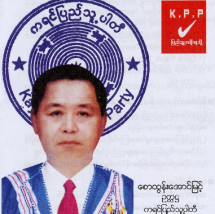Unlevel Playing Field: Burma’s Election Landscape TNI-BCN Burma Policy Briefing Nr 3
Topics
Regions
"Opposition parties participating in the process view boycotting the elections as a strategic mistake. The only way forward for them is to play a better game of chess, making the best strategic use of the limited space available."

If you have trouble viewing this publication in PDF, please kindly use an alternative PDF viewer.
On 7 November 2010, the people of Burma will go to the polls, the culmination of an electoral process closely controlled by the military State Peace and Development Council. The lack of democratic and ethnic inclusion within the electoral process may have very serious negative consequences for conflict resolution in the country. The regime has gone to extraordinary lengths to avoid a repeat of its 1990 landslide defeat; but given strong and widespread disaffection with the government, regime party candidates face a major challenge to win their seats in any fairly counted vote.
While the general contours of the election process are now clear, precisely how it will play out remains uncertain, both to observers and the regime itself. Opposition parties participating in the elections do not regard directly confronting the regime as a winning strategy, as has been demonstrated repeatedly in recent years. They view boycotting the elections as a strategic mistake, futile and potentially counter-productive. The only way forward for them is to play a better game of chess, making the best strategic use of the limited space available.
Conclusions and Recommendations
• The elections will be Burma's most defining political moment for a generation. However the electoral process lacks democratic and ethnic inclusion. Without such inclusion, the country's political crises are likely to continue.
• The electoral playing field is tilted in favour of the regime’s USDP due to strict regulations on registration, the cost of registering candidates, and the limited time for parties to organize.
• Even if the voting is fair, ‘establishment’ parties, together with military appointees, are likely to control a majority of seats in the new legislatures. 37 political parties will participate in the elections. But most have small regional or ethnic support bases.
• Despite the restrictions, democratic opposition parties participating in the polls want to make the best use of the limited space available. The elections begin new arrangements and contests in Burmese politics, which will play out over several years. Outcomes remain unpredictable.
• Ethnic exclusion and lack of polls in many minority areas mean that the election will not resolve the country's ethnic conflicts. The regime’s promotion of Border Guard Forces rather than political dialogue with armed opposition groups has also increased tensions. To establish peace, there must be equitable participation, bringing rights and benefits to all peoples and regions.
Pages: 12